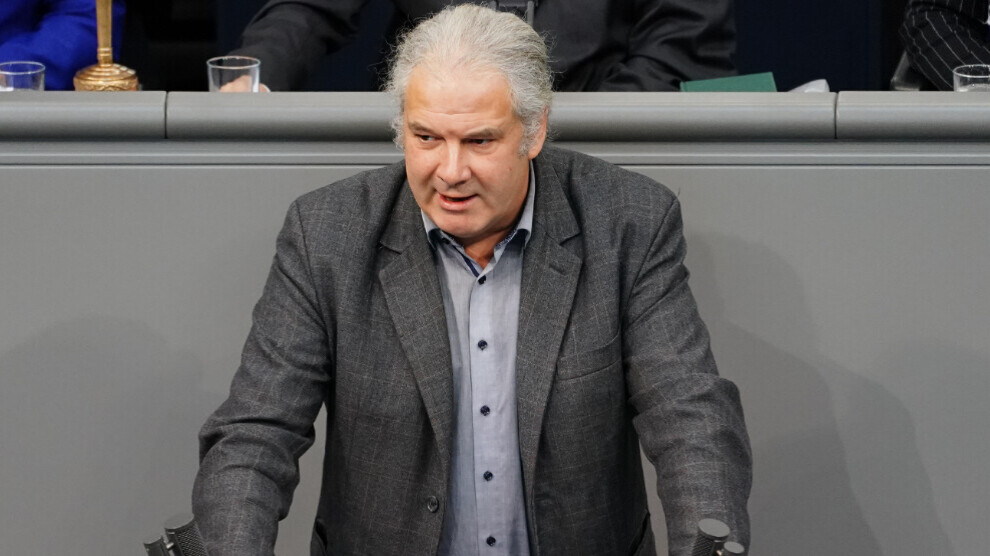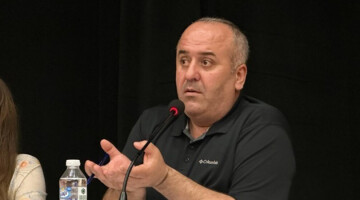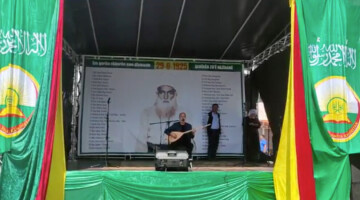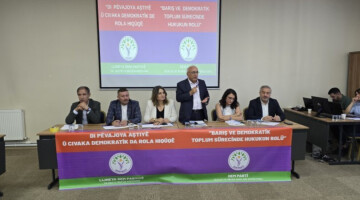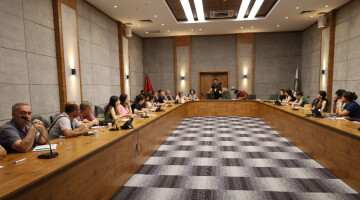The Committee of Ministers of the Council of Europe discussed the human rights situation in Turkey at its quarterly meeting between November 29 and December 2. Infringement proceedings were initiated in the case of Osman Kavala. The Turkish Constitutional Court was asked to immediately take a decision in accordance with the judgments of the European Court of Human Rights (ECHR).
With regard to Abdullah Öcalan and other political prisoners sentenced to life in prison in Turkey, the Turkey Committee of Ministers set a deadline of September 2022 for further information. In 2014, the ECHR ruled in the judgment known as "Öcalan-2" that Ankara had violated the European Convention on Human Rights (ECHR) by imposing an irreducible life sentence on Öcalan. The stricter form of life imprisonment as well as some prison conditions constitute a violation of the prohibition of inhuman and degrading treatment, the Strasbourg court ruled on 18 March 2014. Life convicts should at least have the prospect of early release. The punishment must be reducible and subject to review. However, this is not the case here.
Hunko: My request for a visit is being ignored
Meanwhile, concerns about Abdullah Öcalan and his three fellow prisoners in Imrali prison island are growing. Despite the ECHR decisions and the recommendations of the Anti-Torture Committee in the Council of Europe, the Imrali prisoners have no contact with the outside world. Since March there has been no sign of life from them. Even their lawyers and family members cannot communicate with them. The Turkish authorities justify the ban on visits with disciplinary sanctions. In order to break through the illegal isolation, the Diyarbakir Bar Association and HDP MPs Fatma Kurtulan and Hüseyin Kaçmaz, as members of the parliamentary human rights committee, have also submitted requests for visits.
Member of the Bundestag Andrej Hunko (DIE LINKE) is a member of the Parliamentary Assembly of the Council of Europe and spoke to ANF about the isolation on Imrali and the recent decisions of the Council of Europe Ministers Committee. "Unfortunately, - he said - my repeated request to visit Imrali has been so far ignored by the Turkish authorities. According to all the information available to me, the conditions of detention there are inhumane and incompatible with the standards of the European Convention on Human Rights. The recent ban on visits for Abdullah Öcalan with his lawyers and his family is unacceptable."
"Öcalan could contribute significantly to a solution"
Hunko continued: “The Committee of Ministers of the Council of Europe recently adopted a critical opinion on life imprisonment without the possibility of reviewing this prison sentence, as is customary in other Council of Europe countries. It calls on Turkey to make such a review mechanism possible at the shortest time. At the same time, infringement proceedings were initiated for disregarding the ECHR judgment in the Kavala case. I welcome these decisions. It would now be important that the member states of the Council of Europe, especially Germany, stop the privileged cooperation with the Turkish government in the military, police, judicial and secret service areas."
Regarding the particular importance of Abdullah Öcalan for any solution of the Kurdish question, Hunko said that his release "could contribute significantly to a peaceful solution to the Turkish-Kurdish conflict. In the end, everyone would benefit from such a solution."
The German federal government must draw conclusions
The decision of the Committee of Ministers of the Council of Europe to initiate infringement proceedings against Turkey because of the failure to implement the ECtHR ruling on the Kavala case is described by Hunko as correct. Turkey, a member of the Council of Europe since 1950, has ratified the European Convention on Human Rights and undertook to implement the judgments of the Strasbourg Court of Justice. The ECHR has called for the immediate release of Osman Kavala.
Hunko said: “The now established disregard of the ECHR judgment by Turkey, should imply that the basis of privileged cooperation in the military, judicial and police departments and secret service area between Germany and Turkey will no longer apply. The Federal Government cannot, on the one hand, agree to the infringement procedure and, on the other hand, hold on to this privileged cooperation. At the end of the infringement proceedings, if Turkey continues to disregard the Court of Justice, the Council of Europe has various options, such as the suspension of membership in the Committee of Ministers. This would have the advantage that the dialogue in the parliamentary assembly could be maintained. What is more desirable, however, is the immediate release of Kavala and the former chair of the HDP, Selahattin Demirtas, whose release was also ordered by the European Court of Human Rights."

